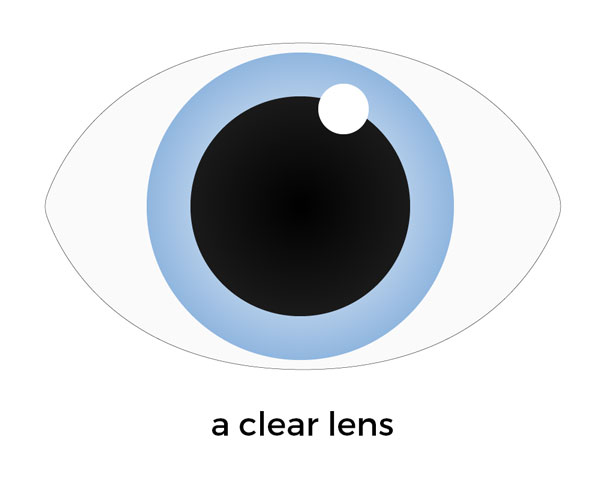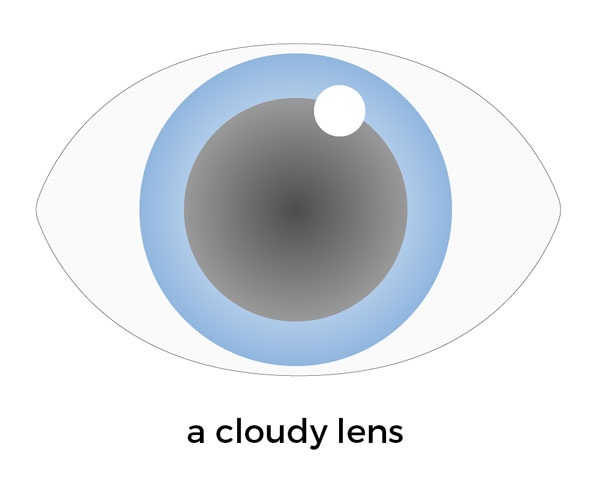Cataract
What is cataract?
Cataract is a clouding of your natural ocular lens. Normally, the lens ensures that a sharp image is projected onto the back of your retina. This gives you sharp vision. If you have cataract, the lens becomes cloudy and your vision is blurred. Cataract occurs most often in people aged over 60, but it can also happen earlier and can develop over months or years.
Symptoms of cataract
- Blurred vision
- Double vision
- Changing vision after the age of 60 (e.g. the ability to read again without glasses)


Treatment of cataract
The only solution for cataract is an operation in which the natural cloudy lens is replaced by a clear artificial lens. We can carry out this operation under local anaesthesia. There are various techniques to remove the cloudy lens.
A cataract operation with lens replacement is the most common operation in Europe. The entire procedure takes less than a quarter of an hour. We use the latest and most advanced instruments for the procedure to guarantee optimal results. The incisions are so small (less than 3mm) that no stitches are needed.
Lens replacement with laser
Phaco-emulsification
Via a small incision, a hollow probe is introduced that vibrates at high speed. The lens with the cataract is broken down into tiny pieces, which are then sucked out through the probe. The rear part of the capsular bag remains intact in order to support the new implanted lens.
Inserting the lens implant
Via the same incision, a folded lens implant is inserted and placed, manually or with a laser, in the empty lens capsular bag.
New, clear lens
Once the new, clear artificial lens is in place, the probe is removed. Because the incision is so small, no stitches are needed.
In-depth examination and the right lens implants for you
A good, thorough intake examination is important for the right treatment and choice of lens implants. This preliminary test takes just over two hours and we recommend that someone comes with you since we might be dilating your pupils with eye drops.
Based on the results of the examination and your own expectations and life situation, we will determine the most suitable lens implants. Our doctors can implant every type of lens.

- Standard, monofocal lens
- Multifocal lens
- Toric lens
If you have irregularities in the cornea (astigmatism, sphericity, etc.), these can be compensated for with a toric lens implant. Both monofocal and multifocal lenses are available in this form.

